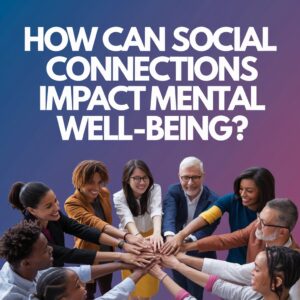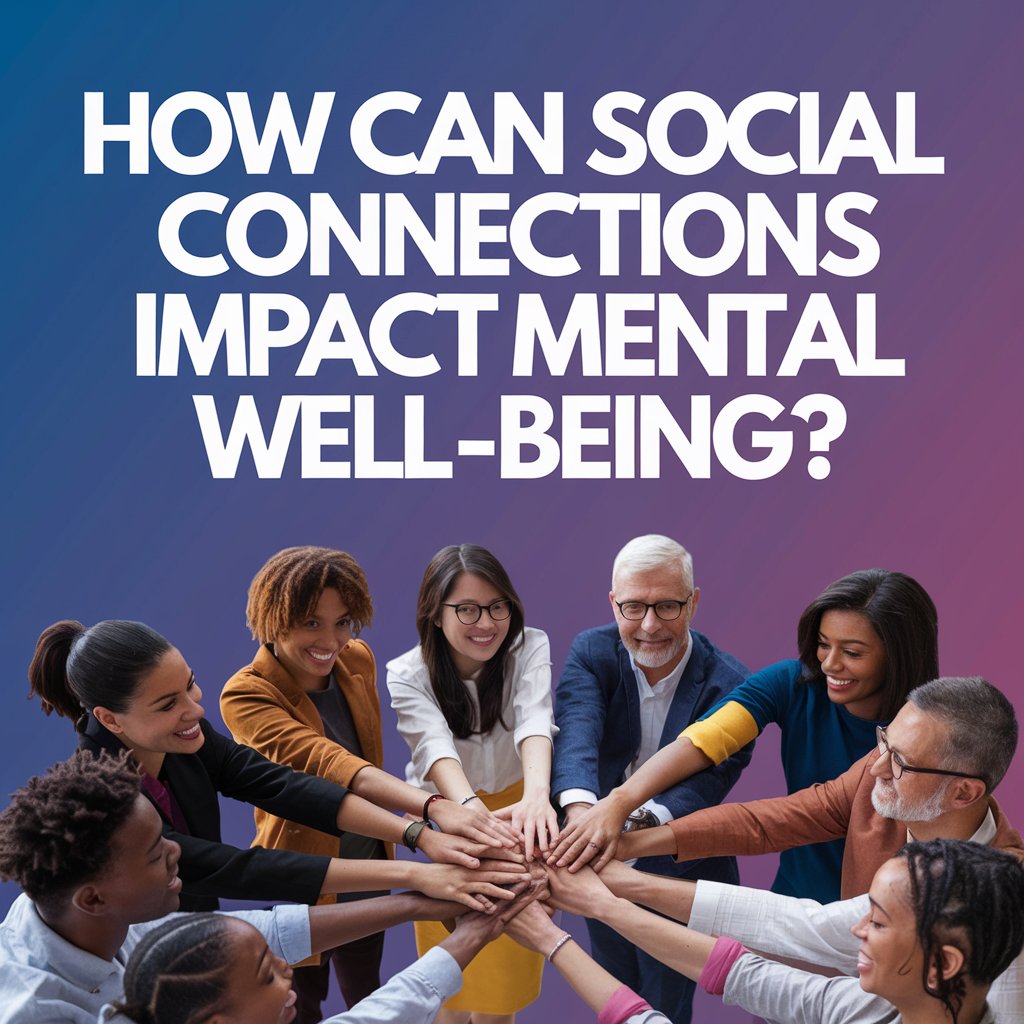Social connections can have a powerful influence on mental well-being, impacting everything from stress levels to resilience in the face of challenges. Here’s a closer look at the effects of social connections on mental health:

1. Reduced Stress and Anxiety
- Support Systems: Having close friends and family members can create a support network that helps buffer stress. Talking through challenges and sharing emotions with others can alleviate anxiety and provide new perspectives.
- Oxytocin Release: Social interactions, particularly those that involve physical closeness or emotional warmth, can trigger the release of oxytocin, a hormone linked to reduced stress and anxiety.
2. Enhanced Self-Esteem and Sense of Belonging
- Positive Reinforcement: Feeling accepted, valued, and validated by others can improve self-worth and confidence.
- Belonging and Purpose: Being part of a group or community fosters a sense of belonging, which is essential for mental health. This connection can improve purpose and motivation, countering feelings of loneliness and isolation.
3. Increased Resilience and Coping Skills
- Shared Experiences: Knowing others have faced similar challenges can improve resilience. Social support can also help people navigate setbacks by offering both practical advice and emotional reassurance.
- Encouragement and Motivation: People who have strong social networks are often more likely to pursue healthy habits, stay active, and engage in positive activities that benefit mental well-being.
4. Protection Against Depression and Loneliness
- Less Risk of Depression: Strong social connections can lower the risk of depression, especially in people who feel seen and understood by their community.
- Combating Loneliness: Meaningful social interactions reduce loneliness, which is a significant factor in mental health decline. Even casual connections, like friendly conversations with neighbors, can positively impact mental well-being.
5. Better Physical Health, Which Supports Mental Health
- Physical Health Connection: Socially connected people often experience better physical health, which can also boost mental health. Social ties can improve immune function, cardiovascular health, and even reduce chronic pain, all of which contribute to a more positive mood and outlook.
Building and nurturing social connections, whether through family, friends, support groups, or community involvement, can foster mental resilience and long-term happiness. It’s one of the simplest yet most effective ways to support mental health and well-being.
